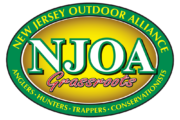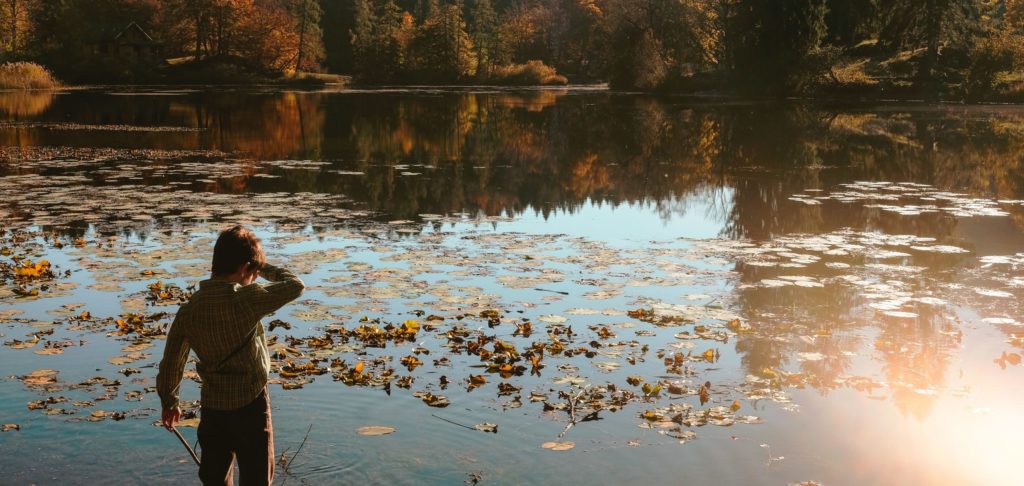New Jersey Outdoor Alliance (NJOA) represents 1.2 million outdoorsmen and outdoorswomen. Our mission as a grassroots coalition is to champion the intrinsic value of natural resource conservation – including fishing, hunting and trapping, among opinion leaders and policy makers. We support legislation, and those sponsoring legislation, that provides lasting ecological and social enrichment through sustainable use of the earth’s resources. Simply said “NJOA has your backs!”
To that end, in 2022 NJOA is focusing on several current access issues you should be aware of.
Today I want alert you to a pressing issue involving the 70,000-acre Delaware Water Gap National Recreation Area (Gap), 34,393 acres of which are in Sussex and Warren counties in New Jersey. A long dormant plan that was defeated several years ago to make the DEWA a National Park has been resurrected by a small steering committee which includes the PA and NJ chapters of the Sierra Club and the former Superintendent. The purpose of this endeavor is to add “prestige” and to hopefully improve funding, however that is not guaranteed. The plan also seeks to provide a cultural center for the Lenape People who once inhabited the area and to provide recreational equity to those who cannot afford to travel to distant national parks.
The problem with this proposal is that National Parks, with rare exception, are closed to hunting and all other consumptive uses. This would be a major change to the traditional use of DEWA since its inception in 1965. To soften the opposition and gain support, this latest proposal suggests a portion of DEWA be re-classified as a “Lenape Preserve” which would contain a cultural center and maintain current uses including hunting. HOWEVER, the overall park/preserve plan is vague and contains no specifics. NJOA has requested specific details but the steering committee cannot provide a map envisioning what they foresee as park vs. preserve and the acreage in each. The steering committee points to a similar plan in West Virginia designating the New River Park/Preserve which resulted in 10% park and 90% preserve. But the breakdown for the Gap proposal remains unknown. A 10% loss of hunting land translate to 3439 acres or 5.4 square miles in NJ.
When Congress authorized funds for the Tocks Island Dam and reservoir and surrounding recreation area, they specifically made public outdoor recreation benefits a priority over preservation of scenic, scientific, and historic features contributing to public enjoyment and they specifically indicated hunting and fishing would be allowed working in concert with state wildlife management agencies. Once the plan for a dam and reservoir were tabled in 1978, all lands became part of the recreation area and the river within its boundary was designated as wild and scenic.
The proposed benefit of a wildlife nursery within the park is not needed. Any loss of hunting in DEWA will create a refuge for bears, a situation that residents of Northwest NJ do not need. Additionally, a decrease in the ability to manage deer will affect forest health and increase car-deer collisions along the Rt. 80 corridor and adjacent roads. Several long-term habitat improvement projects within the Gap including those by the National Wild Turkey Federation, the Ruffed Grouse Society and others may be in jeopardy. Although habitat management within a national park is sometimes allowed, it is a long process to get permission and is the exception, rather than the norm.
Although the park plan professes to promote recreational equity, a park designation decreases the recreational options currently available in direct opposition to the enabling legislation.
NJOA recognizes that the proposal to create a cultural center for the Lenape people, which consider DEWA and surrounding area central to their ancestral home, has merit. However, the proposal seeks to place the cultural center in the preserve where current uses will remain, therefore a “park” designation is not required to move this forward.
NJOA working with the NJ State Federation and NJ Fish and Game Council will continue to watch this situation but at the current time NJOA CANNOT support this proposal which will result in a decrease in recreational opportunity, particularly hunting, and offers no guarantee for additional funding. We believe the Congressional designation as a recreational area remains appropriate for its current and future uses. NJOA will contact appropriate local, county, state and federal elected representatives to let them know our position. So should you. Let your position be known by calling our State Senators whose districts would be affected by this change. Anthony Bucco 973-627-9700, Joseph Pennacchio 973-227-4017, Steve Oroho 973-300-0200 and Michael Doherty 908-835-0552.
Larry Herrighty
Secretary, NJOA

